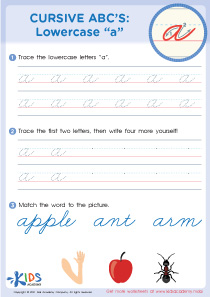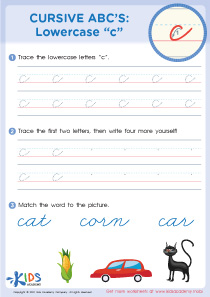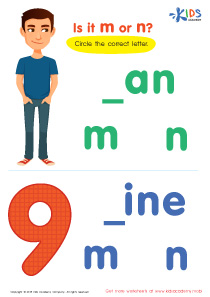Easy Shapes Quizzes for Ages 4-6
4 results
4 filtered results
Clear all filters4 filtered results
-
From - To
Introducing our captivating "Easy Shapes for Ages 4-6" interactive assessment quizzes! Tailored specifically for young learners, these quizzes offer an engaging and intuitive way to explore the world of shapes. From circles and squares to triangles and more, children will embark on a delightful journey of discovery and learning. Each quiz is designed to check the child's knowledge gently, providing immediate feedback to encourage and guide their learning process. Perfect for ages 4 to 6, these quizzes make learning about shapes an enjoyable and rewarding experience, setting a solid foundation for further mathematical understanding. Let your child dive into the fun of shapes today!
In the early stages of child development, understanding basic geometric shapes is fundamental. For children aged 4-6, grasping concepts about shapes not only enhances their cognitive development but also lays the groundwork for future mathematical learning. To aid in this crucial stage of learning, Easy Shapes for Ages 4-6 has been designed as an interactive and engaging tool that significantly benefits young learners.
Easy Shapes for Ages 4-6 consists of a series of easy-to-navigate interactive quizzes that are specifically tailored to the learning capabilities of young children. These quizzes are more than just assessments; they are a fun and engaging way for children to familiarize themselves with shapes, recognize their differences, and understand their properties. By integrating vibrant colors, friendly characters, and interactive elements, these quizzes capture the attention of young minds, making learning about shapes an enjoyable experience.
One of the key benefits of Easy Shapes for Ages 4-6 is its accessibility. The quizzes have been designed keeping in mind the dexterity and computer skills of 4 to 6-year-olds, ensuring that the interface is intuitive enough for children to navigate through the quizzes with minimal assistance. This fosters a sense of independence in the young learners, boosting their confidence and encouraging them to explore and learn at their own pace.
Moreover, the quizzes are structured in a way that promotes progressive learning. Starting with simple identification tasks, children gradually move on to more complex quizzes that involve matching shapes, understanding symmetry, and identifying shapes in different orientations. This step-by-step approach ensures that children build a solid foundation before advancing to more challenging concepts, thereby enhancing their learning experience.
Feedback is another integral feature of Easy Shapes for Ages 4-6. After each quiz, children receive immediate feedback on their performance, which is crucial for their learning process. Positive reinforcement is given for correct answers, while gentle guidance is provided for incorrect ones, encouraging children to think and try again. This instant feedback loop helps children learn from their mistakes and understand the concepts more deeply.
The role of interactive quizzes like Easy Shapes for Ages 4-6 goes beyond just learning about shapes. These quizzes also aid in the development of critical thinking and problem-solving skills. As children engage with the quizzes, they learn to analyze information, make comparisons, and deduce answers, which are essential skills that will benefit them across different areas of study and aspects of life.
Furthermore, the incorporation of technology in learning through Easy Shapes for Ages 4-6 prepares children for the digital age. By interacting with technology from an early age, children become more adept at using digital tools, an essential skill in today's world.
In conclusion, Easy Shapes for Ages 4-6 is an invaluable resource for young learners. Its interactive quizzes provide a fun, engaging, and effective way for children to learn about shapes, fostering not only their cognitive development but also their independence, confidence, and problem-solving skills. As children navigate through the quizzes, they build a strong foundation for future learning, setting them on a path of curiosity and discovery.











